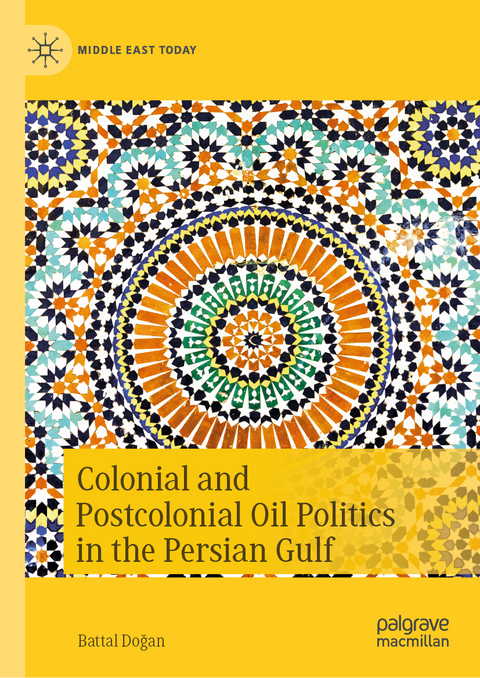
Colonial and Postcolonial Oil Politics in the Persian Gulf
Springer International Publishing (Verlag)
978-3-031-60779-0 (ISBN)
This book examines the British colonial and American post-colonial oil policies toward the Persian Gulf from a postcolonial critical perspective, taking into account the coloniality and postcoloniality of power structures. It examines colonization, decolonization, and postcolonization of oil in the Persian Gulf through the parameters of political order, formulated policies, market structure, concession system, imperial/national interests, and great powers rivalry. In this work, the author uses qualitative, theory testing, and comparative case study method.
There are several reasons that are encouraging for the selection of these two cases: first, British colonial and American post-colonial oil policies toward the Gulf region show similar patterns of domination and exploitation; second, both colonial and post-colonial great powers consider the control of the Gulf oil among their national security priorities; third, both use military interventions, install military bases and involve in coup d'etat in the region to maintain their established oil order; and fourth, both justifies their colonial/imperial oil order in the region with humanitarian objectives such as 'civilizing mission' or 'democratization.'
In this research, the state-level of analysis is used to explore the oil policies of Anglo-American governments. The governance history of oil in the Persian Gulf can be broadly divided into three phases: (1) the colonial period 1901-1950; (2) the decolonization period 1950-1972; and (3) the post-colonial period, since the mid-1970s to the present. Chronologically, the oil policies of Anglo-American governments are examined in loose temporal and spatial contexts, and each period is introduced in independent chapters, but they are complementary to each other.
Battal Dogan holds doctorate (Sakarya University, Turkey) and master's degree (American University, Egypt) in Middle Eastern Studies. His research interests include the international relations of the Middle East countries at the global level, Islam at the cultural level, and oil politics at the economic level. He uses a postcolonial theoretical perspective in his approach to the issues and conflicts in the Middle East. His most recent published articles address various aspects and conflicts of the region: The Foreign Policy of Turkey and Iran in the Arab Spring Period and Their Reflections in the Arab Press, 2011-2015 (Turkish Journal of Middle Eastern Studies, 2022); Conflict Resolution Capacity of the Arab League among its Member States (The Journal of Middle East Studies, 2021); Perception Islama in Postcolonial Europe (The Academic Elegance, 2021
1.Introduction.- 2. Coloniality.- 3. Postcoloniality.- 4. Political Order.- 5. Oil Governance.- 6. Oil Companies.- 7. Oil Concessions.- 8. Oil Politics.- 9. Oil Rivalries.- 10. Decolonization of Oil.- 11.The Arab Oil Weapon.- 12.OPEC and IEA.- 13.Conclusion.
| Erscheinungsdatum | 20.07.2024 |
|---|---|
| Reihe/Serie | Middle East Today |
| Zusatzinfo | XVI, 301 p. 1 illus. |
| Verlagsort | Cham |
| Sprache | englisch |
| Maße | 148 x 210 mm |
| Themenwelt | Geschichte ► Teilgebiete der Geschichte ► Wirtschaftsgeschichte |
| Sozialwissenschaften ► Politik / Verwaltung ► Politische Systeme | |
| Schlagworte | Colonial oil order • decolonization of oil order • Oil exploitation • postcolonial theory • post-colonization of oil |
| ISBN-10 | 3-031-60779-1 / 3031607791 |
| ISBN-13 | 978-3-031-60779-0 / 9783031607790 |
| Zustand | Neuware |
| Haben Sie eine Frage zum Produkt? |
aus dem Bereich


